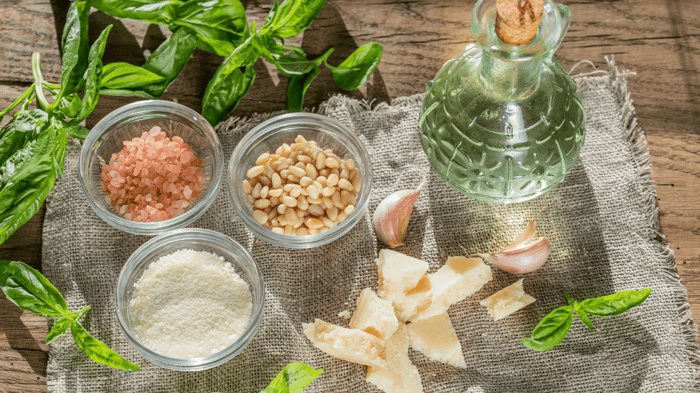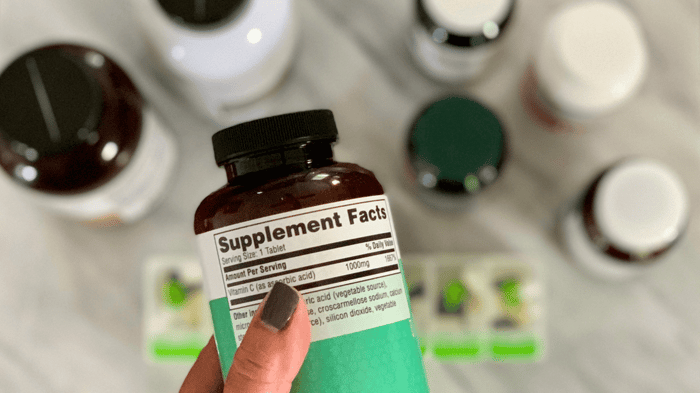Table of Contents
Hormones are like the body’s personal orchestra—each one playing a different instrument that keeps energy, mood, sleep, and even weight in harmony. When one instrument falls out of tune, the entire melody can feel off. That’s why so many everyday struggles—fatigue, cravings, mood swings—trace back to hormones being out of balance.
The good news? Food is one of the most powerful tools we have to support hormonal health naturally. By choosing meals that stabilize blood sugar, fuel hormone production, and calm inflammation, you give your body what it needs to find its rhythm again.
At Flower Power®, we believe food, lifestyle, and natural supplements should work together to support women’s health. That’s why we’re passionate about solutions like She Juicy, designed with plant-based ingredients that keep your body nourished from the inside out.
Understanding Hormones and Hormonal Imbalance
Hormones act as chemical messengers, guiding everything from how you process food to how you feel emotionally. They’re produced by glands in the endocrine system and travel through the bloodstream, sending signals that influence metabolism, reproduction, growth, and mood.
When they’re in balance, your body feels steady and resilient. When they’re not, life can feel like an uphill climb.
Key Hormones and Their Functions
Insulin: Regulates blood sugar and energy storage.
Cortisol: The “stress hormone.” Helpful in small bursts, but harmful when levels remain high.
Estrogen and Progesterone: Orchestrate the menstrual cycle, fertility, and bone health.
Testosterone: Important not only for men’s sperm production and muscle mass but also for women’s energy and libido.
Thyroid Hormones: Control metabolism and energy use.
Even minor shifts in these hormones can trigger noticeable changes in mood, sleep, weight, and sexual health.
How Diet Influences Hormone Balance
Your daily diet is the raw material for hormone production and regulation. Every bite either supports steady hormone signaling—or makes the body work harder to stay balanced.
Nutrients Essential for Hormone Production
Protein, healthy fats, fiber, and key micronutrients like iodine, selenium, and zinc are essential for hormone synthesis. A deficiency in any of these can ripple across multiple systems—slowing thyroid activity, reducing reproductive hormone production, or intensifying stress responses.
Blood Sugar and Insulin Regulation
Stable blood sugar is critical for hormonal harmony. Pairing carbohydrates with protein, fiber, and healthy fats helps avoid spikes that trigger insulin resistance—a key driver of weight gain, fatigue, and reproductive imbalances like PCOS.
Inflammation and Hormonal Health
Chronic inflammation disrupts hormone signaling, making cortisol, thyroid, and sex hormones less effective. Anti-inflammatory foods like fatty fish, olive oil, berries, and leafy greens help calm the body’s systems so hormones can function properly.
Best Foods for Hormonal Health
When it comes to balancing hormones, food isn’t just fuel—it’s therapy. Here are categories to lean on:
Cruciferous vegetables like broccoli and kale support estrogen metabolism.
Healthy fats from avocado, nuts, and olive oil supply hormone-building blocks.
Protein from eggs, lentils, fish, and poultry stabilizes blood sugar.
Antioxidant-rich fruits and vegetables protect hormone-producing glands from oxidative stress.
And here’s where plant-based supplementation comes in: ingredients like Slippery Elm Bark—the hero component in She Juicy™—soothe and nourish mucosal tissue, supporting hydration, resilience, and overall comfort. When paired with a hormone-supportive diet, they can make a noticeable difference in how the body feels day to day.
Foods and Habits to Avoid
Not all foods play nicely with your hormones. Limit:
Processed foods that spike blood sugar and disrupt appetite hormones.
Trans fats that drive inflammation.
Excess alcohol and caffeine that raise cortisol and interfere with reproductive hormones.
Plastics and chemicals that act as endocrine disruptors in daily life.
Lifestyle Factors That Support Hormone Balance
Exercise: Cardio and strength training regulate insulin and cortisol.
Stress management: Meditation, yoga, and breathing practices lower cortisol.
Sleep: 7–9 hours each night keeps hormone rhythms aligned.
These habits amplify the impact of a hormone-friendly diet and help the body reset.
Gut Health and Hormone Regulation
The gut and hormones are in constant conversation. A healthy microbiome helps regulate estrogen metabolism and improves insulin sensitivity. Fermented foods (kimchi, yogurt) and prebiotic fibers (onions, oats) strengthen this connection, supporting smoother cycles and steadier energy.
Optimizing Your Diet for Long-Term Hormonal Balance
Consistency matters. Meal timing, nutrient diversity, and strategic supplementation all help create balance that lasts. Keeping a food and symptom journal can also highlight which foods improve (or worsen) your hormonal health, making it easier to personalize your diet.
Final Thoughts
Hormonal balance isn’t about restriction or quick fixes—it’s about building habits that give your body the steady support it craves. Every balanced meal, every night of good sleep, every mindful choice adds up to more energy, stable moods, and better long-term health.
And when nutrition and lifestyle aren’t enough on their own, plant-based supplements can offer a helping hand. That’s why Flower Power® created She Juicy™, a natural, vegan supplement crafted with Slippery Elm Bark to help women feel hydrated, comfortable, and confident—because your hormones deserve nothing less than balance you can feel.
Explore how She Juicy™ supports your body’s natural rhythm.
FAQs
What foods are recommended for women seeking hormone balance?
Leafy greens, fatty fish, nuts, seeds, legumes, and cruciferous vegetables. These foods support estrogen metabolism, stabilize blood sugar, and reduce inflammation.
Can diet changes really improve hormone balance in just a week?
Yes—while deeper changes take time, reducing processed foods, sugar, and caffeine can quickly improve energy, mood, and sleep quality.
Which vitamins and minerals are crucial for hormonal health?
Vitamin D, magnesium, zinc, and selenium play essential roles in reproductive, thyroid, and stress hormones.
How does stress affect hormone balance, and can food help?
Chronic stress raises cortisol, which drains resources from reproductive hormones. Anti-inflammatory foods and magnesium-rich meals help buffer the effects.
Can supplements support hormone balance?
Yes. Natural supplements like She Juicy™, powered by Slippery Elm Bark, complement a hormone-friendly diet by supporting hydration and comfort, especially for women experiencing dryness or cycle changes.
Should men and women follow the same hormone-balancing diet?
Both benefit from whole foods and anti-inflammatory patterns. Men may need more zinc for testosterone, while women often require more iron and folate.











